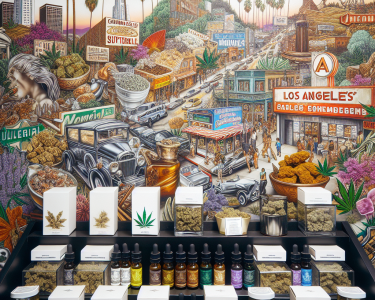The cannabis industry is in a state of dynamic transformation as younger generations, particularly Millennials and Generation Z, emerge as significant market players. Their consumption habits, preferences, and attitudes toward cannabis are redefining traditional notions and driving the growth of the industry. This article explores the unique patterns in cannabis consumption amongst these demographics and how they are influencing the market landscape.
Understanding the Generational Shift
Millennials, born between 1981 and 1996, and Generation Z, born from the late 1990s to the early 2010s, have grown up in an era where cannabis is becoming increasingly normalized. Their attitudes towards cannabis are largely shaped by social acceptance, evolving legal frameworks, and accessibility. This generation often views cannabis as a lifestyle choice rather than a taboo substance.
Key Consumption Trends
1. Preference for Edibles and Beverages
Unlike previous generations that primarily consumed cannabis through smoking, Millennials and Gen Z show a growing preference for edibles and infused beverages. The convenience, discreetness, and variety available in edible products align with their on-the-go lifestyles. Products like gummies, chocolates, and cannabis-infused drinks have gained immense popularity, offering a more palatable alternative to traditional smoking.
2. Focus on Health and Wellness
Health-conscious consumers are increasingly drawn to cannabis for its potential therapeutic benefits. Many Millennials and Gen Z consumers prioritize products that contain CBD (cannabidiol), which is often promoted for its wellness properties without the psychoactive effects associated with THC (tetrahydrocannabinol). This demographic emphasizes transparency in product labeling and sourcing, seeking out organic, non-GMO, and ethically produced cannabis products.
3. Sustainability Matters
Environmental concerns significantly influence purchasing decisions among younger consumers. Many Millennials and Gen Z prefer brands that demonstrate sustainable practices, such as eco-friendly packaging and responsible cultivation methods. As awareness of climate change and environmental degradation grows, ethic-driven consumption is likely to become more pronounced in the cannabis market.
Digital Influence and Social Media
Digital platforms are playing a pivotal role in shaping cannabis consumption habits. Social media platforms like Instagram and TikTok have become central to cannabis marketing, enabling brands to reach younger audiences effectively. Influencer culture guides purchasing decisions, with social media personalities endorsing specific products and brands that resonate with their followers.
Changing Legal Landscapes
The rapid legalization across various regions has created opportunities for Millennials and Gen Z to engage with cannabis in safe and regulated environments. Many young consumers are now more willing to explore cannabis products, thanks to the increasing prevalence of legal dispensaries and reduced stigma associated with consumption. This shift opens doors for innovation, with brands aiming to appeal to a discerning and conscious consumer base.
Conclusion
The cannabis market is undergoing a significant transformation driven by the consumption trends of Millennials and Gen Z. Their preferences for edibles, sustainable practices, health and wellness products, and influence via social media are reshaping the landscape of the industry. As these generations continue to mature and influence market demand, it is clear that the cannabis industry must adapt to these trends to thrive. Businesses that prioritize authenticity, sustainability, and transparency will likely succeed in capturing the loyalty of these discerning consumers. The future of cannabis consumption looks bright, and it is one that promises to be shaped by the values and choices of the younger generations.
Frequently Asked Questions (FAQs)
1. What are the primary reasons Millennials and Gen Z consume cannabis?
Millennials and Gen Z often consume cannabis for recreational use, wellness benefits, and social experiences. They are particularly drawn to products that offer therapeutic effects without the psychoactive properties of THC, such as CBD.
2. How do Millennials and Gen Z prefer to consume cannabis?
This demographic shows a strong preference for edibles and infused beverages over traditional smoking methods. This shift is largely due to the convenience, variety, and health considerations associated with these products.
3. Is sustainability an important factor for young cannabis consumers?
Yes, sustainability is crucial for Millennial and Gen Z consumers. They tend to favor brands that practice eco-friendly methods in their cultivation and packaging, reflecting a broader concern for environmental issues.
4. What role does social media play in cannabis consumption trends?
Social media has become a powerful marketing tool, enabling brands to engage with younger consumers through influencers and targeted content. It shapes product perception and drives purchasing behaviors among these demographics.





